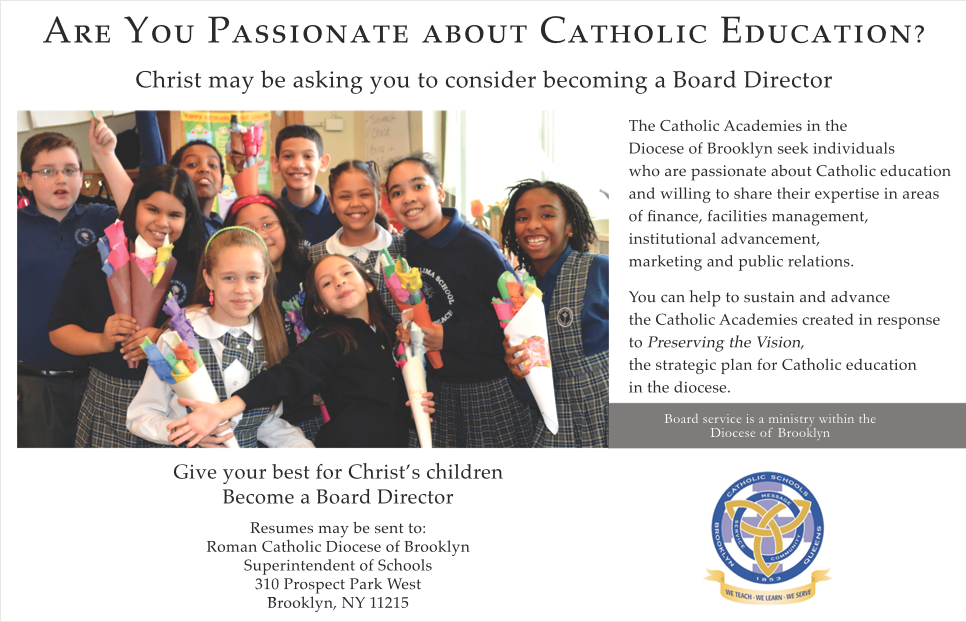
November 8, 2013 – Excerpted from “Put Out Into the Deep,” Bishop DiMarzio’s column in The Tablet:
“As I reflect upon the New Evangelization, I also contemplate the various roles and ministries embraced within it. Catholic schools and academies certainly remain a vital component. One may recall the words of Blessed John Paul II: “Catholic schools are at once places of evangelization, of complete formation, of inculturation, of apprenticeship in a lively dialogue between young people of different religions and social backgrounds.”
It is with this profound vision of Catholic education that the Diocese of Brooklyn launched the Preserving the Vision Strategic Plan for its elementary schools in 2008. Developed together by clergy, lay people, educators and professionals of various fields, Preserving the Vision is, most simply, a strategic planning process to ensure the success and vitality of Catholic education within our diocese. With numerous goals and strategies, it is an ongoing initiative taking place in every Catholic school and academy. It is a living process that continuously grows and develops.
One key priority of Preserving the Vision is to transition all schools to academies by 2017. With 34 academies established to date, we are joyful witnesses of growth. Allow me to share with you the growth of our academies, the importance of the academy model and what it means within our diocese.

We know that when Catholic schools began, they were more often than not run by religious orders and governed by the pastor of the associated parish. I am grateful for the religious orders that gave so much to our children, but we cannot neglect that the situation today has changed. The New Evangelization embraces the reality that many of the ministries in our Church today are carried out by lay people.
With the academy model, the governance of our Catholic schools shifts. This is the difference between a school and an academy. Catholic school governance relies heavily on the principal and the pastor, while Catholic academy governance relies on a strategic balance of boards made up of both clergy and lay people.”
Read the full text of the Bishop’s column on The Tablet website.
